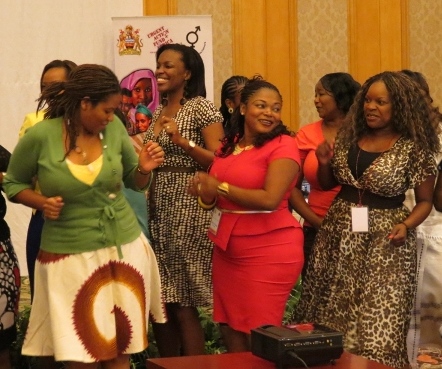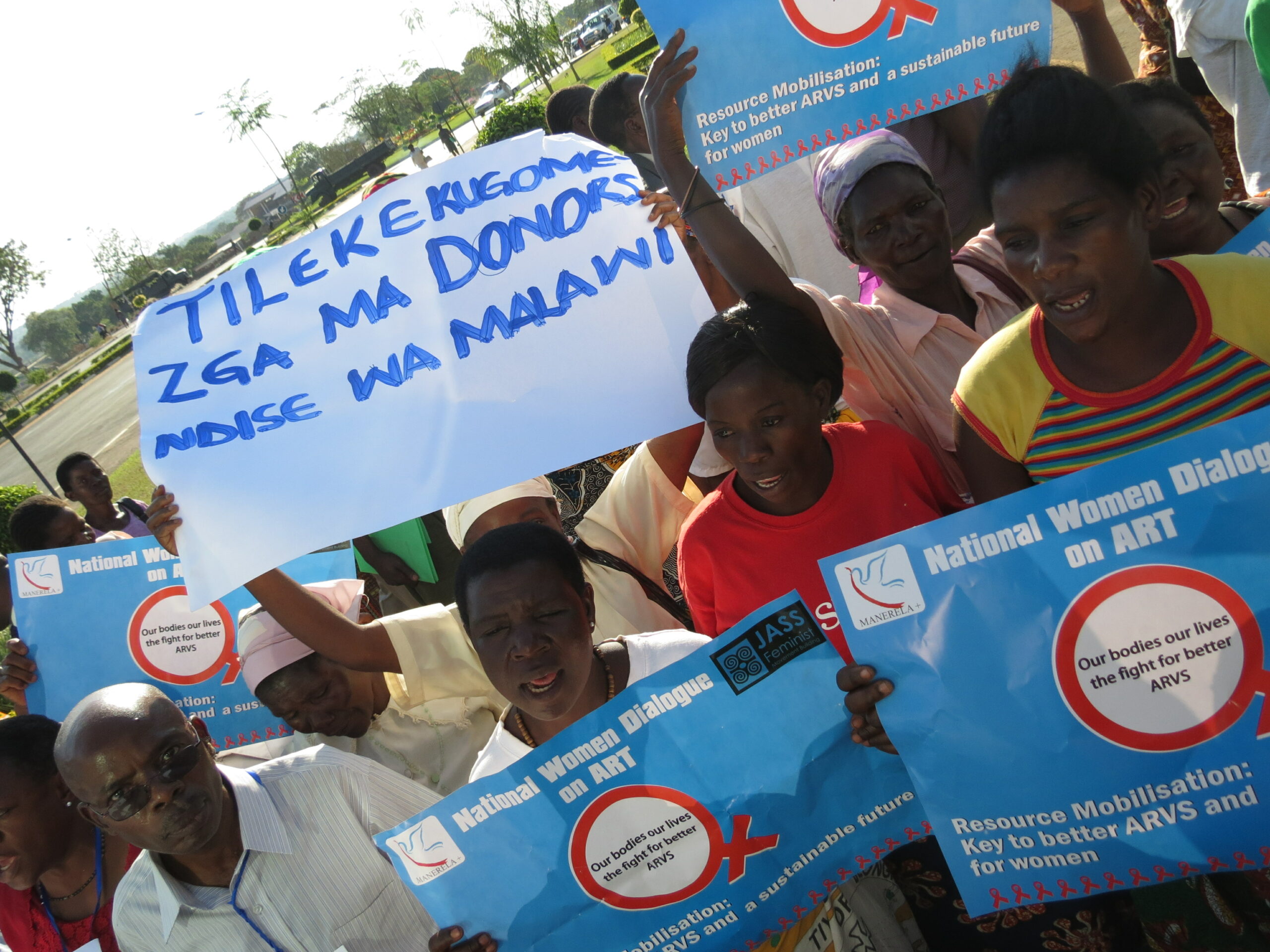Can feminist leadership principles and practices help change current top-down leadership models on the African continent? If social transformation—deep democracy, freedom, dignity, and wellbeing—is our vision for the future, business as usual is not taking us there. Women are playing leading roles from politics to community-based organisations—but are these enough? Women often reproduce the authoritarian leadership prevalent elsewhere. Rarely do we ask, “What kind of leadership do we want to create through and with women?
“We are all part of a system—the ‘Master’s House,” reflects Shereen Essof, JASS Southern Africa’s Regional Director, drawing on Audre Lorde’s famous quote, “deconstructing our own patriarchal socialisation and interrogating our own practices to build the kind of leadership that will break the authoritarian system is part of our job [as feminists].”
Recognizing the challenges and limitations of simply getting more women in government, Urgent Action Fund-Africa (September 9-11) convened 250 women and men from across the African continent at the Women Steering Innovative Leadership in Africa (WSILA) Conference to discuss what feminist leadership is, and how to build and multiply it in Africa both inside and outside of government. Held in Lilongwe, Malawi, the Conference brought together women activists, representatives from government and development agencies, donors, and women politicians. From diverse perspectives, attendees discussed socio-economic and political challenges (e.g. poverty, limited access to good healthcare, and violence against women) and social change strategies for addressing these problems in Malawi and the region – including advancing women’s human rights, wealth creation, economic empowerment, and sustainable development.
“[We need] to confront power over. Confronting power is central to feminist leadership and movement-building. If we as women leaders replicate the practice of power over, how are we any different from mainstream male-stream practices of leadership?” – Shereen Essof
JASS Southern Africa staff and our Malawi partners challenged delegates to think about what prevents transformative feminist leadership from taking root and growing. JASS’ opening session discussed the Our Bodies, Our Lives Campaign in Malawi, a nation-wide grassroots organizing effort for better ARV (anti-retroviral drug) medicines led by HIV positive women which JASS has helped to build with our partner, MANERELA+ (Malawi Network of Religious Leaders Living with and Affected by HIV/AIDS). The Campaign brought together a diverse group of women— including HIV+ women, rural/urban women, sex-workers, LBT organizations, and religious communities—through an organizing effort since 2007 to push for safe, affordable ART (anti-retroviral therapy) and resources that save and improve the quality of women’s lives, such as land, seeds, fertiliser, mobile health clinics, and nutrition. Sharing what some of the positive women involved in the campaign have overcome—social isolation, shame, and desperate poverty—they raised critical questions about the urgency and meaning of feminist leadership in this context, and what it tells us about different forms of power.
 JASS’ approach to feminist leadership puts women’s hearts, minds and bodies at the centre of organising agendas. As one woman activist leader put it, “It starts with our bodies. When you see a woman, everything she has gone through is written on her body: her pain, her joy, her suffering, her happiness. It takes courage to say it starts with me. This courage is important [for building our movement].” These personal stories anchor dialogues in which women analyze power and begin to shape common agendas. These deep change processes combined with skill-building and strategy workshops have enabled 30 women leaders to mobilise over 500 women in their communities to join in the campaign for better ARVs and lives.
JASS’ approach to feminist leadership puts women’s hearts, minds and bodies at the centre of organising agendas. As one woman activist leader put it, “It starts with our bodies. When you see a woman, everything she has gone through is written on her body: her pain, her joy, her suffering, her happiness. It takes courage to say it starts with me. This courage is important [for building our movement].” These personal stories anchor dialogues in which women analyze power and begin to shape common agendas. These deep change processes combined with skill-building and strategy workshops have enabled 30 women leaders to mobilise over 500 women in their communities to join in the campaign for better ARVs and lives.
UAF’s conference came at a pivotal time for HIV positive people in Malawi. While the government has begun a rollout of an alternative ART to the outdated Stavodin which had deformed women’s bodies in addition to other side effects, some districts have not yet received the new drugs and there is no guarantee that this change will be sustained beyond a year given budget constraints.
This conference is a platform for us as women to voice our grievances because we are angry. If someone promises you that this will happen, and the next thing you see the exact opposite, it makes you angry. We want to share what we have been doing in this campaign, how we are contributing to the response on HIV/AIDS as women. The work we are doing is not just to benefit us as women, but it will improve the lives of men, women, girls, and boys everywhere that are living with and affected by HIV and AIDS.” – Sibongile Singini, MANERELA+
Women activist leaders supported by JASS, MANERELA+, and a wide range of organisations including Malawi Women’s Forum and COWLHA (Coalition of Women Living with and affected by HIV/AIDS) are committed to carrying this fight forward—in their communities and nationally. The conference was an ideal opportunity to gain allies and supporters from across the continent and indeed, the globe.


























